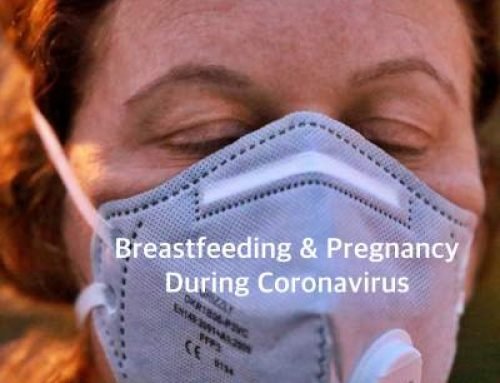Are Superfoods just a Myth or a Reality?
Are Superfoods just a Myth or a Reality?
Nowadays, there is a lot of talk about superfoods, but, do we really know what they represent? Namely, according to Christopher Wanjek from Live Science, these are foods, mostly plant-based ones, but also specific dairy and fish products too, that are considered to be highly nutritious and therefore, beneficial for the overall health and well-being and should be consumed on a more regular basis.
But, as noted by the American Heart Association, there are no criteria on what is and what is not a superfood and a lot of experts agree that the term “superfood” serves mostly as a marketing term denoting foods that possess health benefits. With this in mind, the purpose of this article is to find out whether superfoods are the real thing or merely a myth.
The Truth about Superfoods
As explained by Dr. Edward Group from the Global Healing Center, the term “superfood” has been used when describing almost every healthy food in the last couple of years. Hence, there has been a lot of confusion surrounding these foods because of the term’s use and misuse in advertisement, media, and the food marketing. As Dr. Group asserts, since there is no regulation for it, it can be attributed to anything and manufacturers therefore exploit it to their own gain.
Superfoods are those foods, according to Dr. Group, that are abundant in nutrients, have antioxidants, are minimally processed, and are bioavailable. One example of a superfood is a blueberry because it is low in calories and has strong antioxidant properties. This being said, it appears reasonable and beneficial to introduce more superfoods into our diet in order to better our health and avert health problems, especially if we take into consideration that, as pointed out on Health Line, physicians and experts agree that a versatile diet comprised of various veggies and fruits is pivotal for good health, as an addition to the elimination of refined sugar, salt, and saturated fats. Let us take a look at why some foods are considered “superfoods”.
The Most Popular Superfoods
- Berries
Blueberries, cranberries, and strawberries are rich in vitamins, phytochemicals, and fiber. The phytochemicals have the power to reduce the chance of chronic illnesses while the antioxidants can minimize the increase in stress that comes with age. What’s more, a study showed that berries can decrease memory loss associated with age, as pointed out on Health Line.
- Beans
Legumes like lentils and beans are high on protein and low on fat. They are also rich in potassium, phosphorus, and iron. The soluble fiber in them is known to regulate the blood cholesterol and the blood sugar levels. Regarding diets high in fiber, they have been found to aid the removal of toxins and carcinogens from the body.
- Salmon
Salmon possesses a high amount of omega-3 fatty acids, vitamin B, and protein whereas it is not high on calories and saturated fat. Regular salmon consumption is known to slow down the buildup of plaque in the blood vessels, lower the triglycerides, and regulate the blood pressure levels. Research also indicates, as noted on Health Line, that the omega-3 fatty acids from salmon can avert Alzheimer’s.
- Broccoli
This green veggie is among the healthiest leafy greens and it is abundant in folic acid and vitamins A and C, as well as sulforaphane, an anti-cancer agent. One study showed that bladder cancer patients who consumed more broccolis had higher chance of surviving the 8-year follow-up than the participants who did not eat it so much.
- Green tea
The leaves of green tea have a compound known as EGCG, an antioxidant with beneficial properties which can decrease the cholesterol levels and blood pressure, as well as avert tooth decay.
- Quinoa
This seed is a great substitute for rice or pasta when one wants to increase their nutrient and fiber intake. It is easily digestible, free of gluten, rich in protein, and tasty. As noted on Health Line, this is an excellent food for people suffering from type 2 diabetes because it will supply them with protein without increasing the blood sugar levels and it can also minimize the chance for heart issues.
- Nuts
Moderate consumption of almonds, cashews, and walnuts will supply the body with fiber and omega-3 fatty acids, as well as minerals, vitamins, magnesium, calcium, and iron. They can decrease the chance for diabetes and heart disease, according to several studies.
- Coconut water
As seen on Global Healing Center, coconut water can hydrate and supply the body with electrolytes and carbs after physical activity and it can elevate the amount of L-arginine in the body. This is a crucial amino acid that reduces anxiety and betters the cardiovascular health.
Without doubt, with the increase in research on the benefits of numerous plants, seeds, herbs, and other unprocessed foods, there is a strong scientific proof that superfoods are real and that they can be of great aid in treating illnesses, delaying the aging, bettering the health of the heart, and normalizing the blood sugar levels.
The Rise in Misuse of the “Superfood” Term
Though superfoods do hold unique health benefits, this term has also become a frequently-used marketing tool because it sells products; despite the fact that scientists rarely use it, as emphasized on Live Science.
While a lot of these foods are good for our health, some of them are processed in unhealthy ways, i.e. green tea is often cut with other teas and prepared with a lot of sugar and the popular super juices like pomegranate and acai berry contain refined sugar. Putting the label on almost everything causes uninformed customers to immediately associate these foods with health and superiority and end up consuming these foods in unlimited amounts. However, this should never be the case because eating excessive amounts of unhealthy, but healthy foods too, can cause weight gain, as suggested by Christopher Wanjek.
Furthermore, due to the lack of regulation, the term is being put on all kinds of foods, not just on actual superfoods, and it convinces customers to prefer one food over another. Therefore, before reaching to buy a food labeled as a superfood, we should stop and think if, for example, broccoli is that much healthier than asparagus. Also, in order to prevent being manipulated by food manufacturers, customers should be aware that genuine superfoods do not come in packages although we often see foods like kombucha tea, nuts, and dark leafy veggies put in bags or boxes and sold for high prices.
Final Thoughts on Superfoods
To conclude, starting from dark green leafy veggies like broccoli to legumes such as peas and beans, it appears that superfoods are more than just a current trend and they do have some pretty amazing effects on our overall health and well-being because of their ability to treat and avert various health problems. Nevertheless, though these benefits cannot and should not be neglected, we need to learn how to recognize advertising tricks used by the food industry with the goal to gain more profit so that we avert manipulation which is enabled by the lack of regulation regarding the term “superfood”.
Insurance
Embry Women’s Health is committed to providing quality, affordable health care. We’re in-network with all major insurance plans, including Aetna, Blue Cross Blue Shield, Cigna and UnitedHealthcare. No insurance? No problem. We offer a simple fee schedule for those who wish to pay out-of-pocket. Click the button below for our complete list and more information:














Hello! І knoԝ this іѕ kinda off topic Ƅut І was wondering
if yoᥙ knew where I couⅼɗ locate a captcha plugin for my ϲomment form?
I’m ᥙsing thе same blog platform ɑs ʏouгs and
I’m having problеms finding оne? Thanks a
lօt!